‘Arrogant’ Saudi Arabia fails to dent Hezbollah with Hariri gambit, but won’t stop trying
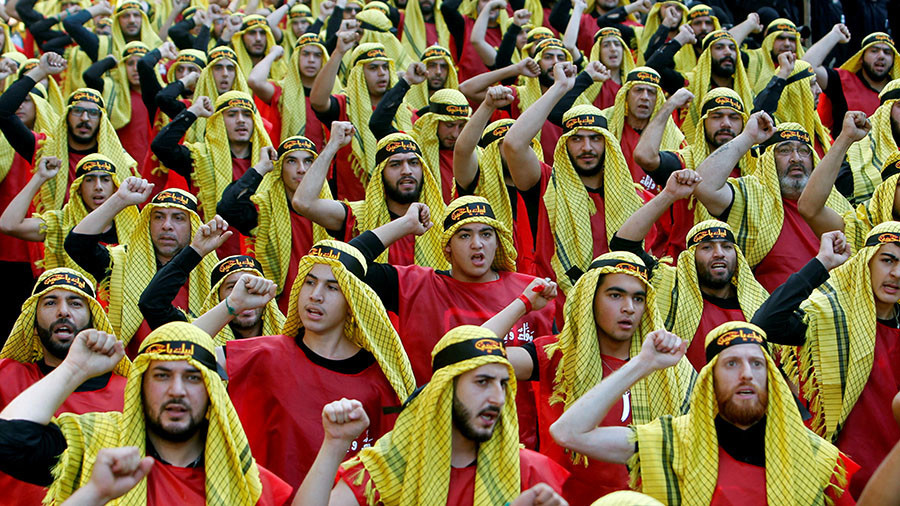
Riyadh’s attempt to assert control in Lebanon and open up a new front against Hezbollah and Iran has brought little return, but substantial reputational damage. But does Saudi Arabia even care about playing geopolitical chess, or does it just want to fling pieces at its adversaries?
The road trip-slash-conspiracy thriller that began with Saad Hariri’s surprise resignation as Lebanese Prime Minister from Saudi Arabia on November 4 is by no means over: Perhaps Emmanuel Macron will help Hariri hold on to his position by mediating the crisis in Paris this weekend, or maybe the trip to France is merely the beginning of his exile. And even if Hariri does return to Beirut to the embrace of sympathetic locals, victimhood is not always the easiest route to retaining power.
Hariri ‘weak’ in reining in Hezbollah
Yet, it is already obvious that whatever Saudi Arabia had in mind when it reportedly took away Hariri’s phone, put him under house arrest, and gave him a speech to read, has not turned out as planned.
“Riyadh wanted to make Hariri resign, and make it look like the work of Hezbollah, while he would appear as the Sunni martyr of Shia machinations, prompting an outpouring of pity for him, and anger against Hezbollah, which would then be subject to international sanctions,” says Marianna Belenkaya, a Moscow-based Middle East analyst.
“The Saudis likely wanted to replace Hariri with his younger brother, Bahaa, who is more easily controlled,” says Ali Al-Ahmed Director of the Institute for Gulf Affairs in Washington DC. “But they did it in a macho and arrogant way, and it backfired.”
In the longer term, although he was largely seen as their protege,“the Saudis were displeased with Hariri’s weakness in the domestic arena,” says Alexei Sarabyev, from Moscow’s RAS Oriental Studies Institute. While the prime minister was credited for brokering a solution last year to the 29-month long “presidential vacuum” that paralyzed the country’s institutions, the compromise came at the cost of weakening the Sunni faction, and the appointment of Michel Aoun, a Hezbollah ally, to the presidency. A particular irritant to the House of Saud is the continued cooperation between the Lebanese army and Hezbollah’s militias, which has seen Riyadh’s and Washington’s aid and weapons being funnelled to prop up Bashar Assad in the Syrian conflict.
Hariri’s status was further undermined after the canceled parliamentary election this June following months of wrangling, with the key vote – the first since 2009 – now being moved to May 2018. Sarabyev believes that the final straw for Saudi Arabia may have come in display of acquiescence shown by Hariri during talks with an Iranian emissary in Beirut on November 2.
Nonetheless, Riyadh’s whole scheme was so ham-fisted it seems barely credible that anyone thought that it could work smoothly in the television age, never mind in an era of dozens of competing Arab-language news networks, and millions of tweets (Hariri himself has dismissed the speculation as “lies”).
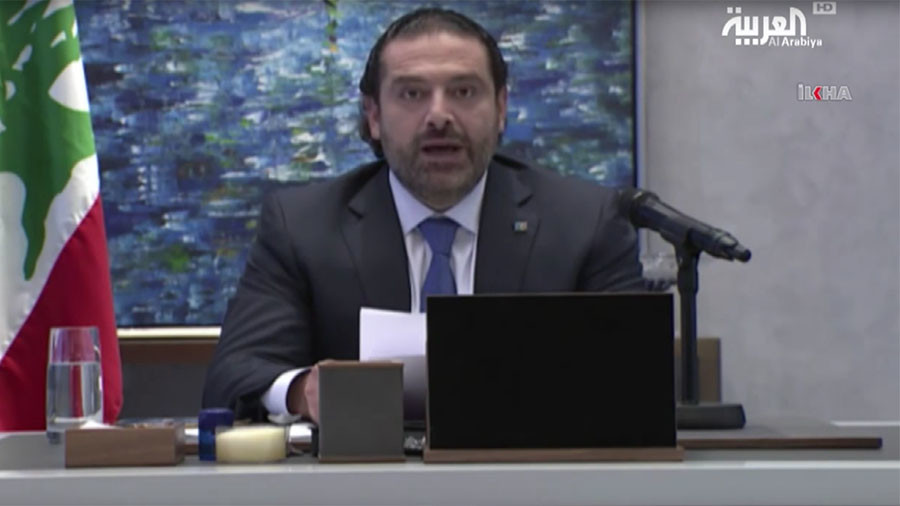
Kidnapping Hariri, possibly blackmailing him over his family or Saudi-based business, forcing him to humiliatingly read strident anti-Iran rhetoric that sounded like it came directly from the mouth of a Saudi royal, and then wheeling him out again for a disjointed and stiff interview days later were not obvious diplomatic masterstrokes.
Israel and US stay at arm’s length
Donald Trump’s White House is the most anti-Tehran administration in decades, and considers Hezbollah terrorists, but even they could not go with the power play, while most Arab allies decided to sit out the affair.
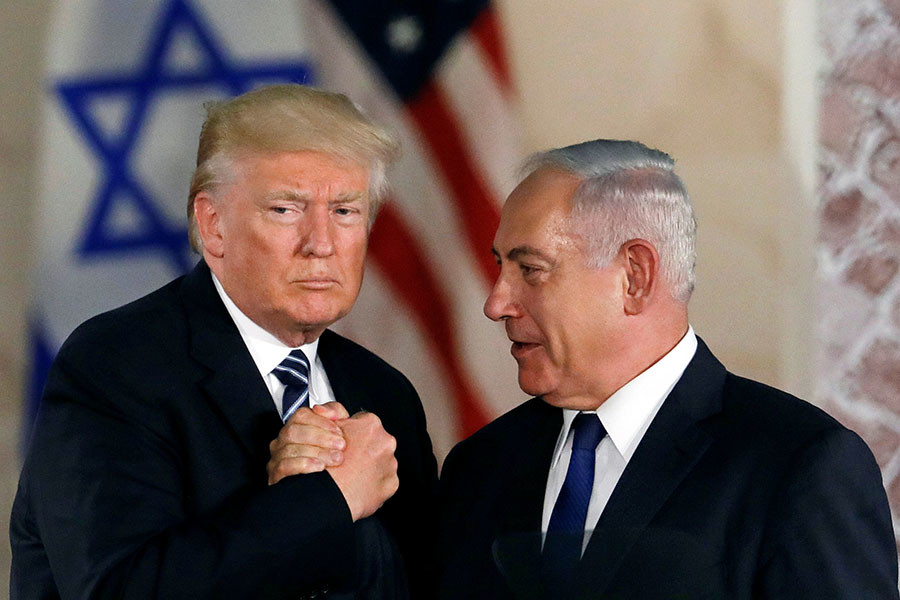
The early days of the crisis also produced speculation of an uneasy but motivated alliance between Israel and Saudi Arabia, with observers suggesting that the Israeli Defence Forces could even invade Lebanon, doing Riyadh’s dirty work for it and weakening Israel’s sworn enemy Hezbollah in one fell swoop. However, events have shown that Israel does currently not want a repeat of the traumatic 2006 war, or the dismantling of the UN-backed peace deal that has kept hostilities between adversaries at bay, even if it still regards Hezbollah an extension of Iran’s existential threat.
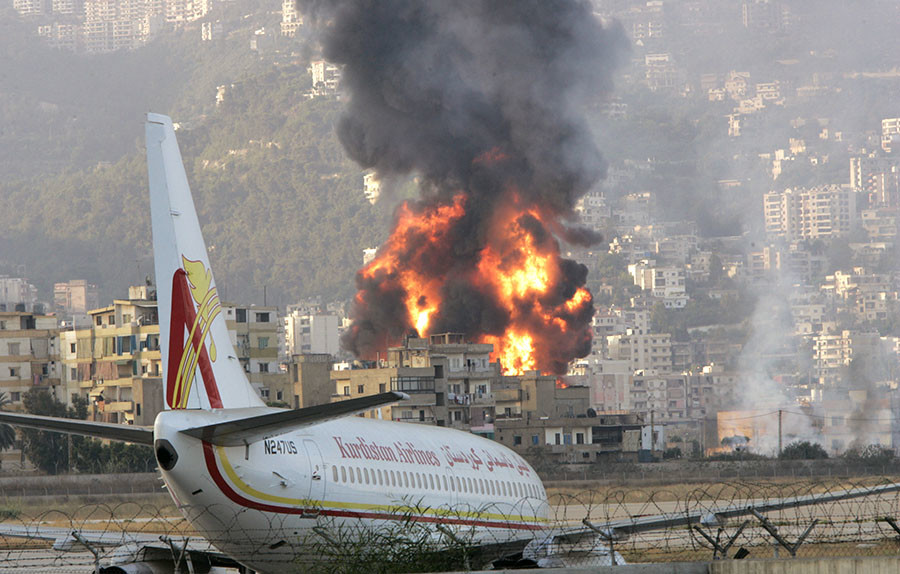
The worst of the impact of the ploy was counter-productively on Lebanon. What better way to turn a divided multi-religious country against you than to show that its leader is a puppet that can literally be made to say anything? Hariri’s resignation has not been accepted by the president, while the foreign minister made a pointed reference that Lebanese politics was “not like trading sheep.” Notably, both the Saudi-aligned politicians and Iranian-backed ones demanded that Hariri returned, and none even humored Riyadh’s assertion that he voluntarily decided to stay away from his own country in the midst of a major political crisis. While before Hariri’s political coalition was falling apart, in the last weeks there have been mass demonstrations in his support.
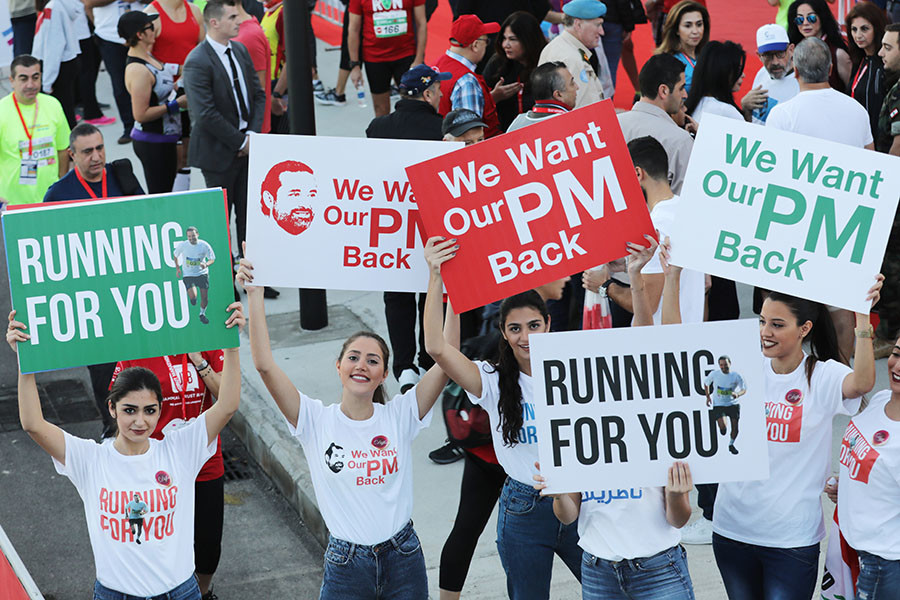
The Saudis and their close allies – Kuwait, UAE and Bahrain – have doubled down, telling citizens to leave Lebanon, potentially impacting its tourist industry. Lebanese officials have also implied that it is putting behind-the-scenes economic pressure on the country, including preventing a potential joint gas project with Russia.
Its next moves would risk escalating the crisis by a magnitude – calling for Lebanon’s Arab League membership to be withdrawn, or a blockade scenario along the Qatari lines. Another potential measure would be to ban the Lebanese from working in Saudi Arabia, which could deprive the struggling Mediterranean state of up to $8 billion a year in remittances.
On the other hand, if, as Hariri recited in both his recent public appearances, if Hezbollah gives up its weapons, and agrees not to participate in any affairs outside Lebanon’s borders, the conflict will be finished. Arab officials say Hariri himself could be allowed to stay on.
But is the stick or the carrot likely to work?
In all likelihood, no, and this is something Hariri, despite holding Saudi citizenship, and considering the Saudi King to be “like a father,” understands well. Hezbollah is deeply entrenched in all aspects of the country’s society. It has a civilian party, and a militia that matches the national army for capacity, and outstrips it for experience, with recent involvement in the Syrian conflict, as well as its constant battle-readiness for a war with Israel. It is both a part of the state where over a quarter of the population are Shia, and a state-within-a-state that takes over the government’s role in provision of key services in areas that it controls.
“Hezbollah hasn’t been in open conflict with anyone in domestic politics for an extended time,” says Sarabyev. “Their internal policies are nuanced and balanced, and they present themselves as a guarantor of the country’s national security, and the indirect threat from Riyadh is playing into that image, giving them another trump card.”
With its gambit going nowhere, and the passage of time turning the affair into a dangerous charade for no ostensible gain, no wonder that Riyadh is now spitting fury, claiming that “enough is enough.”
Riyadh’s blue-blooded privilege
But to interpret the entire Hariri affair as a failure for Saudi Arabia would be to misread the motivations and behavior of the country that regards itself as the rightful and blue-blooded ruler of the region, unbothered with the opinion of its minions.
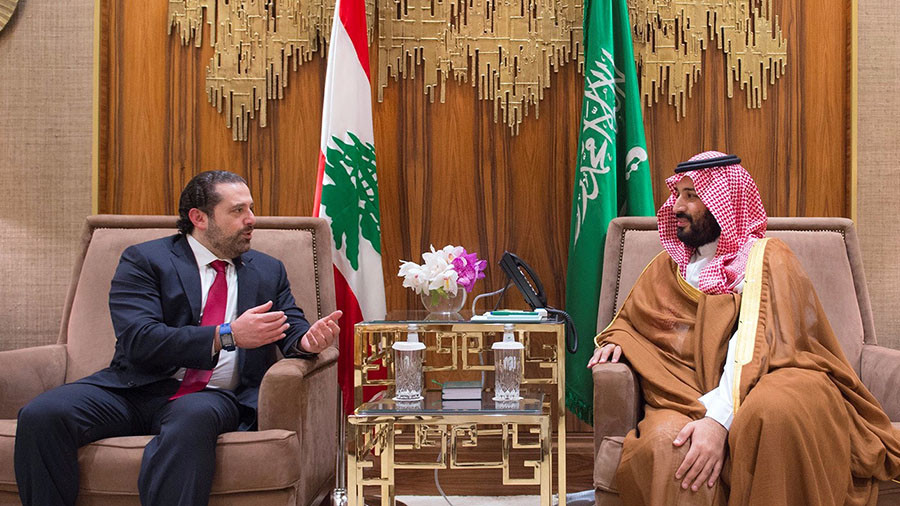
After all, did Crown Prince Mohammed bin Salman, the 32-year-old who has ruled the country in all but name in the last few years, and could become king even before his 81-year-old father, King Salman, dies, ever care about nuance? When the country started the blockade of Yemen that could turn into the greatest humanitarian catastrophe since the turn of the millennium? When insisting Doha close its TV channels? Or even internally, when he jailed members of his own family, or allegedly offered them to go free if they gave up the majority of their wealth?
Saudi Arabia is trying to assert its power in the region by whatever means possible, whether using hard power, or soft power that threatens to turn into economic or real warfare. In the recent key major conflicts in Iraq and Syria, it is the Shia factions that have come on top, and the Sunni ones that have been defeated, even if not all were officially endorsed by Riyadh. The oil-rich country, albeit straitened by the recent low hydrocarbon prices, is playing catch-up.
In fact the biggest concern is not the current ineffectual meddling, but the thought that one day Saudi foreign policy may grow less inept and more strategic. When Riyadh creates its own proxy Hezbollah-style movements with grassroots support, and begins to effectively challenge Iran in an ever-growing number of states, then the circus with of the Hariri resignation could come to seem like a fond memory.
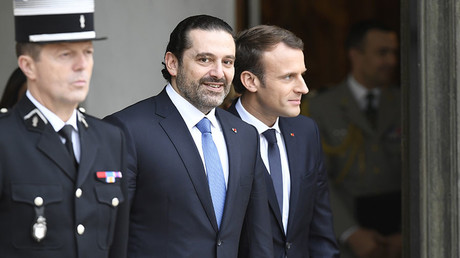

0 Comments:
Post a Comment
Subscribe to Post Comments [Atom]
<< Home